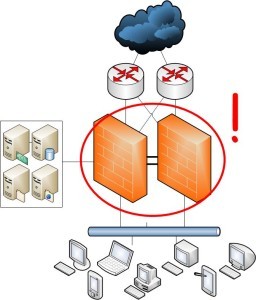Quick Answer: MB vs. KB
For your convenience, let’s get the quick answer upfront:
MB (MegaByte) is bigger.
When comparing a MegaByte (MB) to a KiloByte (KB), the larger unit of data storage is, indeed, a MegaByte (MB).
1 MB (MegaByte) is equivalent to 1024 KB (KiloBytes).
To break it down further, a MegaByte equals 1,000,000 Bytes, while a KiloByte equals 1,000 Bytes.
Let’s Start With Binary
We will start with something you never ever wanted to learn: Binary.
This is where it all started. Without it we would never have the KB vs MB discussion.
Binary, The love language of computers. Luckily it is easy to explain. It is a very simple numbering system that only has ones and zeros.
If you look at the graphic below the top number is what that digit will equal if there is a one in it. If there isn’t a one, then it has no value.
If there is a one, then you count it and add it together with all the other little ones’. Got it?
So, for an example. If you have a one under 1, 2, and 4 you would have 7. Simple right?
All of that just to get to each one of those digits would be a bit. Now notice I did that with a small b as this becomes important.
What Is A bit
Now bits would primarily be used for speed. Vroom, vroom, Say like your internet speed. That would be in bits.
Well hopefully that will be in megabits or faster. I sure don’t want to go back to dialup speeds.
What Is A Byte
Okay I hope you got all of that. Now we move on to Bytes. Yep Bytes, I did not spell it wrong.
Now you notice that I used a capital B this time. Yes, KB is kilobytes and MB is megabytes. So, we have now moved away from speed and on to storage capacity.
Okay so hold on. I bet you have some questions.
Like why did we change to storage?
Why did we have a binary lesson?
I am glad you asked.
A Byte is 8 bits. Here is where it will become clear why memory and drives come in the sizes they do.
So, a Byte can have a value from 0 to 255 which is 256 bits. What! Okay, one thing you need to know in the computer world zero is a number. Comes in handy if you are subnetting IPs, but that is a different article.
Now we know that one Byte is 256 bits. So, two Bytes is 512 bits, three Bytes is 1024 bits and so on. So, are those numbers starting to look familiar?
Why do we have Bytes anyways. Ahh, so you type a letter on your keyboard. Let’s say you type the @ sign. What your computer is seeing is 01000000.
If you go back to the binary chart that would be 64 if you made it a decimal. Now I am old school and we also used to refer to this as a word, but you won’t see that anywhere anymore. You can look up ASCII code if you want to know more.
That answers how we went from speed to storage. We needed a way to measure how to store all of those little letters (Bytes).
Quick Review
Binary = on/off or 1/0
bits = small b so 100Mbps (Mega bits per second) like your internet speeds.
Bytes = Capitol B so 1TB (Terra Bytes) like your SSD drive
Round 1: MB vs KB
Well, we know that the capitol B stands for Bytes. But what about those capitol letters in front of the Bytes?
I won’t get into a Greek lesson here, so let’s make this simple. We will just refer to the metric system.
- Deca = 10
- Hecto = 100
- Kilo = 1,000
- Mega = 1,000,000
- Giga = 1,000,000,000
- Tera = 1,000,000,000,000
And it goes on from there including some I had no idea there was a word for.
Round 2: MB vs KB
As we can clearly see from the chart above Mega is way bigger than Kilo.
There is really no contest and MB is clearly the winner here over KB.
Really if you look at our modern electronics of the day, both of these really do not matter anymore.
Just for some reference my first real computer (We won’t talk about the Vic20) had a whopping 10MB harddrive (WOW).
Today I don’t even own a flash drive that isn’t in the GB (Giga Bytes) range. I really do not even want a storage drive that is under a TB (Tera Byte).
Thankfully in this day and age the price per Byte of storage has come way down and will continue to do so as technology increases and the need for more storage also increases.
Welcome to the digital age.
While the answer to the question we started with was very simple. I hope you enjoyed the road we traveled to get to the final battle.
I hope you learned a few things along the way that will help you out sometime in the future. Even if it is just so you can say. Hey I know that!











